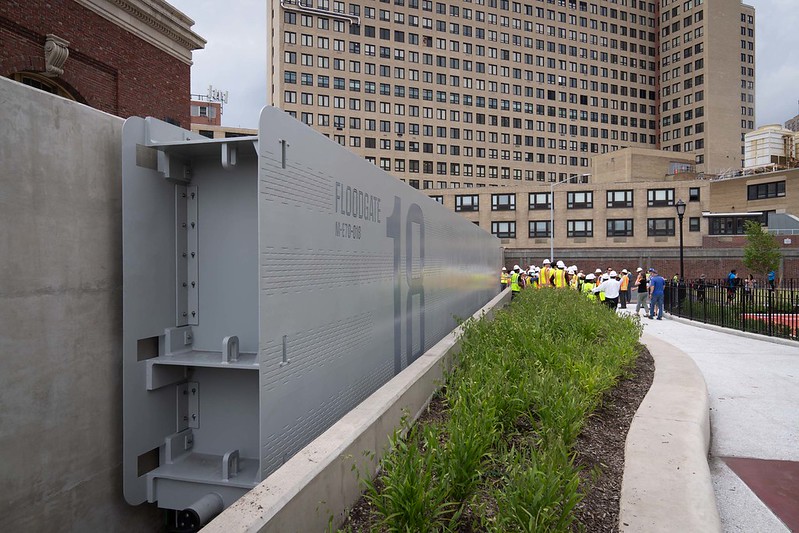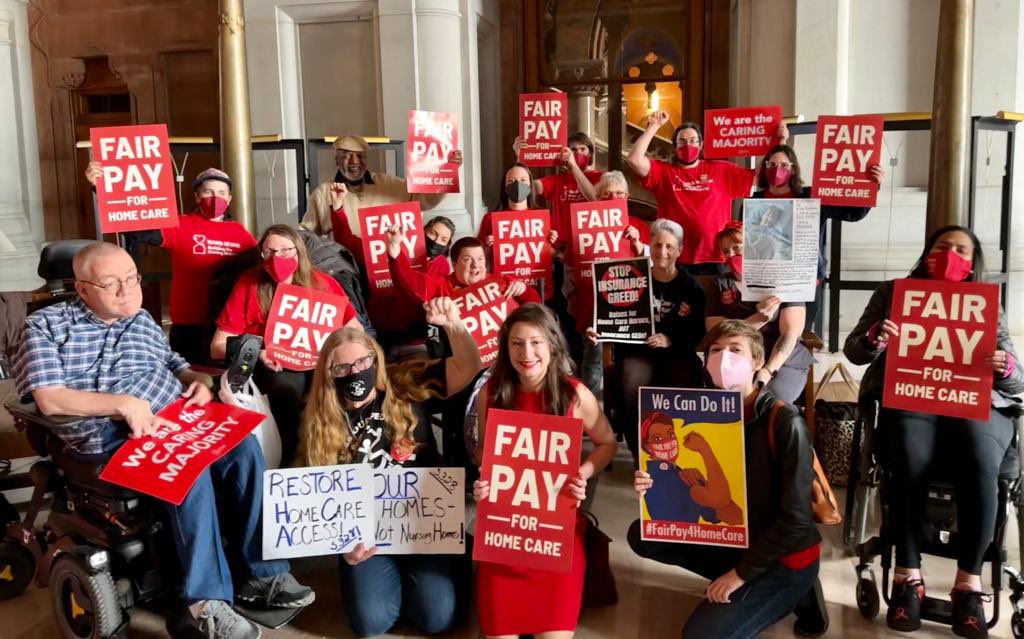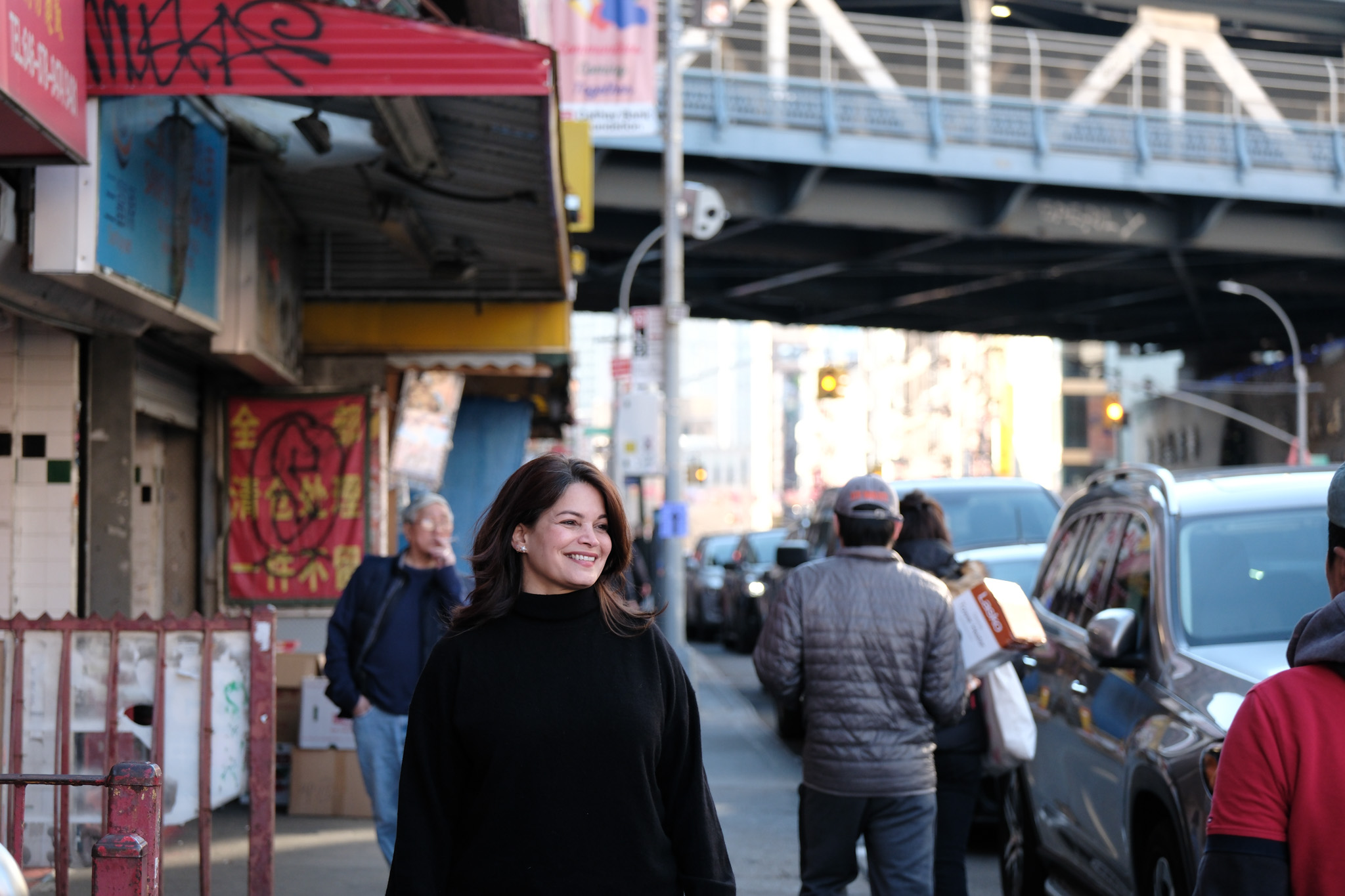New York City Needs Federal Legislation for Preventative Climate Resilience

Climate resiliency efforts (photo: Ed Reed/Mayoral Photography Office)
Our nation faces a growing and urgent need to enhance our resilience to flooding and other natural disasters, which are becoming increasingly frequent, intense, and costly. For example, since 2000, flood-related disasters in the U.S. have accounted for more than $850 billion in damage and losses. We can no longer afford to delay action to more fully and proactively address the devastating effects of extreme weather events such as these.
New York City is addressing this on a municipal level – earlier this year Mayor Adams announced the expansion of stormwater management projects in flood-prone communities, which is a step in the right direction of looking to update our existing infrastructure to mitigate the impact of flooding events.
However, it's crucial that all levels of government take action to improve our resilience to these challenges – and we particularly need support on a federal level. As it stands now, the federal government's siloed approach to resilience often creates inefficiencies and challenges for state and local partners. The current approach contributes to wasted taxpayer dollars and missed opportunities to address risk.
What we need is a piece of federal legislation that can streamline federal resilience operations and help fill the nation's resilience gaps – bolstering the efforts that city and state governments are leading. Key components of any bill of this kind should include:
Creating a Chief Resilience Officer (CRO) position within the White House to improve the coordination of federal resilience initiatives.
This position would align resilience efforts across agencies and integrate them with state and local partners. By creating this role, the federal government can embrace a model being adopted by a growing number of states across the country.
Taking stock of federal barriers to building climate resilience and identifying solutions to address them.
This would involve developing a national resilience strategy that streamlines federal support, leads with science, puts nature to work, and addresses historical inequities. Federal working groups will ensure that the national strategy includes practical and coordinated resilience goals. The strategy will also include incentives to spur local and state adaptation action and prioritize the use of nature-based solutions.
Promoting equity and efficiency.
Leaders within the federal government's resilience operations, such as the proposed CRO, must regularly report on federal resilience efforts, funding resources available for resilience and barriers to improving resilience, and identify ways to ensure that federal funds are being distributed effectively and equitably. This will help address long-standing concerns of local communities and states that federal programs and assistance to address disaster risks are often disjointed, redundant, and overly complicated.
And finally, giving a diverse set of stakeholders a seat at the table in developing the national resilience strategy.
A successful national resilience strategy would account for the values, needs, and expertise of state, local, Tribal, and territorial governments, NGOs, as well as the private sector. This will ensure that actions are equitable and better address the on-the-ground needs of those most vulnerable to climate impacts.
We need the federal government to take this critical step toward improving our nation’s resilience to the growing threats of flooding and other disasters. Solutions like this deserve bipartisan support. It is economically and environmentally sustainable to do so.
We cannot afford to delay action and risk further losses of lives, homes, businesses, and infrastructure. Through these avenues, we can better safeguard the nation – and New York City – from the devastating effects of flooding and other extreme weather events.
***
Dina Rabiner is VP of Economic Development and Strategic Partnerships at the Brooklyn Chamber of Commerce. On Twitter @brooklynchamber.
***
Have an op-ed idea or submission for Gotham Gazette? Email This email address is being protected from spambots. You need JavaScript enabled to view it.
Our Communities Need Fair Pay for Home Care Work; Albany Leaders Must Hear Them

The push for Fair Pay for Home Care (photo: @CaringMajority)
For the first time in United States history, a president has declared April as Care Workers Recognition Month. Making the announcement, President Biden stated, “Care workers help raise our children, assist seniors as they age with dignity, and support people with disabilities." Despite this, care workers remain among our nation’s least recognized heroes.
Today, home care workers are some of the lowest-paid workers in the country and routinely face harsh working conditions. Countless providers are forced to hold multiple jobs and overwhelmingly rely on public assistance programs. One in four home care workers lives under the federal poverty line. In an industry comprised primarily of women, particularly women of color, the impact of this chronic underpayment widens gender and racial pay gaps, and tangibly undermines the wellbeing of our communities.
As President Biden noted, “care is the work that makes all other work possible,” and providing fair pay to home care workers extends far beyond the bounds of labor and economic justice. The vast majority of older adults and people with disabilities in New York would like to remain at home. Therefore, the opportunity to receive skilled health care safely at home and with dignity is a foundational older adult and disability justice issue.
Presently, however, New York faces the nation’s largest home care worker shortage in the nation. Investing in Fair Pay for Home Care in the state’s next budget will put an end to this crisis, incentivizing new workers to join the home care sector.
A 2021 CUNY study found that higher wages for home care workers and improved working conditions would not only attract more than 50,000 full-time home care workers, but the economic multiplier effects would generate tens of thousands of employment opportunities outside of the home care industry. An investment in home care workers would also net the state billions of dollars in savings. But time is short as the state budget process gets down to the wire.
As it stands, Governor Hochul’s executive budget is out of tune with the progress we made last year to index home care wages at $3 per hour above minimum wage. This was a small, but meaningful first step. The next state budget, due any day now, must continue building on this progress, advancing us down a path of justice and equity.
This is a time to recognize that Fair Pay for Home Care is a kitchen table need for millions of New Yorkers. The deliberate policy choice to underpay care workers leaves millions of families struggling to care for aging parents or a loved one with disabilities. But the Governor could work with the Legislature to enshrine Fair Pay for Home Care in the state budget and establish her legacy as a national leader in building a care economy that would make tangible inroads on centuries worth of systemic inequities.
Recent data from AARP-New York shows that 2.2 million family caregivers, predominantly daughters and daughters-in-law, provide 2.1 billion hours of free care, costing the state $39 billion. It’s well acknowledged that the best long-term care insurance you can have is having a daughter or daughter-in-law. We have both served as family caregivers for loved ones and know firsthand that this policy has the dual effect of pushing thousands of women out of the workforce or forcing them to remain in unwanted, unfulfilling jobs, undermining their financial security. Physical and mental health problems also frequently arise as family caregivers often feel isolated meeting the constant demands of caregiving. But we can – and should – do more.
Governor Hochul is New York’s first mother, grandmother, daughter, and granddaughter to serve as the state’s executive, and while her words of support are encouraging, they ring empty without action to pass Fair Pay for Home Care. Today, aging in place is a privilege afforded to few. Fair Pay for Home Care would change this, ensuring New Yorkers in search of care can find it; and will serve as another tangible step toward a future defined by care and love, justice and equity.
***
New York City Council Member Crystal Hudson represents the 35th District in Brooklyn and serves as the Chair of the Council’s Committee on Aging. Bobbie Sackman, MSW, is the former Director of Public Policy at LiveOn NY and is a campaign Leader with the NY Caring Majority and Jews for Racial and Economic Justice. On Twitter @cmcrystalhudson & @SackmanBobbie.
***
Have an op-ed idea or submission for Gotham Gazette? Email This email address is being protected from spambots. You need JavaScript enabled to view it.
The American Dream is Still Possible in NYC, But We Need Strong Local Leadership

Ursila Jung, the author
As an immigrant, I see a truth that is sometimes not obvious to everyone: the United States of America is so much more than a mere geographical entity. It is a land where the American Dream of opportunity and prosperity is possible. It is a place that people around the world aspire to because it is a beacon of hope and promise. I know this to be true because the U.S. is a country where a person like myself - an immigrant woman - can dream of having a fair chance at running for public office.
Unfortunately, today, it seems as though the American dream is beyond the reach of many. I am running for New York City Council in Lower Manhattan’s District 1 because I believe I can help restore people’s confidence in this possibility. I am running because I remember how choked up I was when I caught my first glimpse of the Statue of Liberty and thought of the hundreds of thousands of immigrants who set foot on Ellis Island escaping persecution, drought, famine, or war, looking to build a new life in this brave new world. I am running because I have seen the grit, perseverance, and determination of everyday New Yorkers, which was never more clear than in the months following 9/11. I am running because I believe in this democracy.
If America is the land of opportunity, New York City is where it all happens. I believe for this country and this city to be at its best, every American must participate in our democracy. We must all take collective ownership. Change begins when everyday people like us choose to make our voices heard. Many New Yorkers I speak with feel left out of the political process and disenchanted with many of our elected officials.
Despite most of this country being firmly in the middle of the political spectrum, our attention is diverted time and again to the loudest voices at the fringe. Many feel that their votes don’t matter and that they cannot make a difference. I am running with the express purpose of bringing more people into the political fold, to help them feel confident in the strength of their vote. I am running because I know that we need to work together to have an economically, socially, and culturally vibrant city that values hard work and respect for all.
In speaking to New Yorkers in District 1 since I launched my campaign last month, it’s become clear that there are a number of issues we need to address, most notably: Growth, Learning, and Safety. I believe New York City can soar again by prioritizing these issues.
Growth: New York City has long been at the heart of the global business and financial world. Our city has always been a place for innovation and creativity that powers not only our local economy, but the nation as a whole. Unfortunately, our business community has been left unsupported despite its essential role in making New York City unique and in many cases, carrying us through the COVID-19 pandemic.
These businesses need elected leaders with the political will to help them survive and thrive. By cutting through the bureaucratic maze small businesses have to navigate, better controlling commercial rents, and providing incentives for businesses to open locally, we can drive our local economy forward with good-paying jobs.
Learning: As a mother, I know that there is nothing more important than the safety and education of our children. I am committed to ensuring that all children, especially those who have been under-resourced for so long, have access to a high-quality education that focuses on preparing them for a technological world.
By offering families more options in their children’s education, we can empower parents to make the best decisions for their families. Educating our children is essential to ensure that all Americans will be at the level needed in this increasingly competitive and interconnected global economy.
Safety: As a New Yorker, I know that our perception of safety has been drastically altered in this post-pandemic world and that it is impeding our ability to return to the New York City we know and love. I’m running because I know we need to increase public safety in our neighborhoods so that families feel safe. In some instances we can do that with more training for police officers and more foot patrols to assist our small businesses with petty crime. We can also better serve individuals who need mental health and social services by providing them with professionals trained to handle those specific situations, reducing the need to put police officers in situations they’re not prepared to handle.
The answer here is not easy, but I believe when we invest in community policing and increase collaboration between law enforcement and local organizations, we can create a safer environment for everyone so our neighborhoods are places where families can live, work, and play without fear.
I am running for New York City Council because the time for extreme politics is over. I’m running because I believe in the potential of our community to rise above our current challenges and build a better future for us all. As your City Council representative, I promise to be a tireless advocate for these goals and to work diligently to make our community the best it can be.
***
Ursila Jung is an immigrant, mother, and community advocate running for New York City Council in District 1 in the June Democratic primary. On Twitter @UrsilaJung.
***
Have an op-ed idea or submission for Gotham Gazette? Email This email address is being protected from spambots. You need JavaScript enabled to view it.




